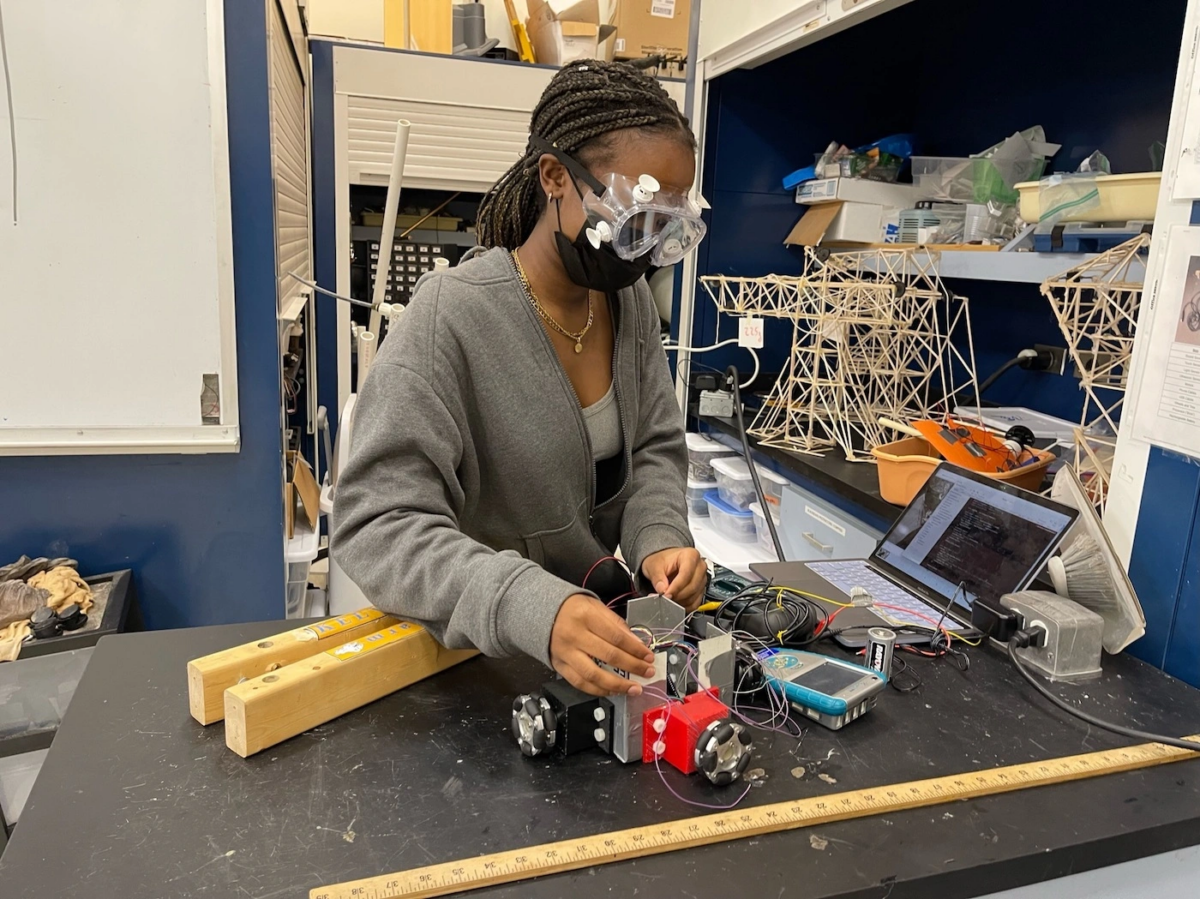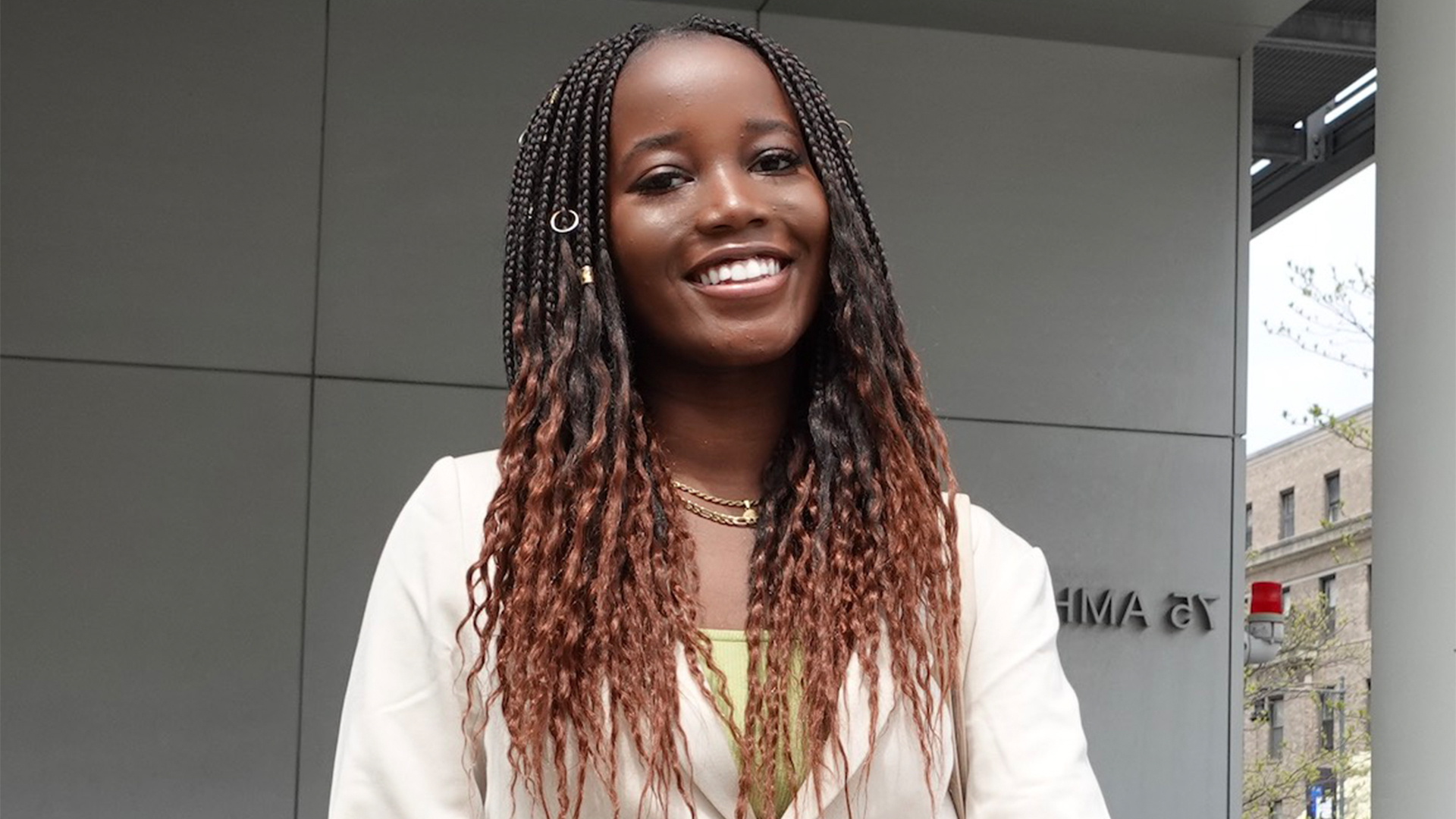Seventeen-year-old Elizabeth Nyamwange is already a pioneer.
The Byron, IL, native is the inventor of Etana, a device that intends to resolve the global identification crisis.

NPR reports one billion people — nearly a seventh of the world’s population — are impacted by this issue. Therefore, they do not have documents including birth certificates, passports, and driver’s licenses.
In 2020, Nyamwange saw the direct consequences of this rampant issue when she visited a shop in Kenya owned by her aunt. She noticed many women were unable to purchase items because they did not have a bank account.
“When I’d ask why they didn’t have a bank account, a lot of them would say ‘It’s because I have no ID,'” she told AfroTech in an interview. “So, then I came back, and I didn’t really kind of think about it for a while. But when I started, I took this app development course, and I was immediately thinking, ‘Maybe I can do something that helps people create digital identification?'”
Nyamwange merged her interest in programming — which she watered while attending Illinois Mathematics and Science Academy — and social justice to improve outcomes in her parent’s native country and beyond.
As a result, Nyamwange turned her attention toward building a prototype. She purchased a 3D printer and applied for funding to support development. Raising funds wasn’t easy, but she says she managed to secure more than $60,000.
“It was a little tricky,” Nyamwange explained. “It’s difficult to invest into something if the founder looks really young and they look there’s a chance they might not know what’s going on, but I applied to a bunch of different crowdsource funding. So, they’d be giving money away to a lot of different people. It was all social impact. That’s kind of what was helpful for me. A lot of grants weren’t expecting anything in return.”
Ultimately, the support led to the creation of Etana in 2021.
According to a press release, the solar-powered device is empowered by blockchain technology to provide women with unique biometric digital identification.
“Why I even thought about using blockchain is because of the idea that it’s decentralized,” Nyamwange said. “So, let’s say if a woman is inputting information, no one can change it. It’s immutable. No one can deny anything.”
She added, “So, I guess the idea of why blockchain is so necessary for this is simply because of all of the gender bias in these countries already right now. You need something that’s immutable, something that’s decentralized, something that can’t be hacked, faked, or stolen, [and] something that can’t be altered at all.”
What’s more, Etana will not require internet or electricity to function, eliminating another barrier that some women in rural areas living in the country may face.
“A lot of women in the area don’t have electricity or internet. Some of the really rural areas, those are the women that need it most and they just don’t have the type of phones readily available that could use this,” Nyamwange detailed. “That’s when I went into the idea of is there a way to create something that would work without electricity and without internet?”
For now, she is not operating with the intention of being a for-profit enterprise, and the device is being tested by women who are not paying to use it.
“It’s just a matter of taking the time to make sure that it’s well designed for the women who are intended to use it,” she said.
As for the future, in five years, Nyamwange hopes to pilot her invention to gauge the response from a wider market and further create a gender inclusive digital economy.


